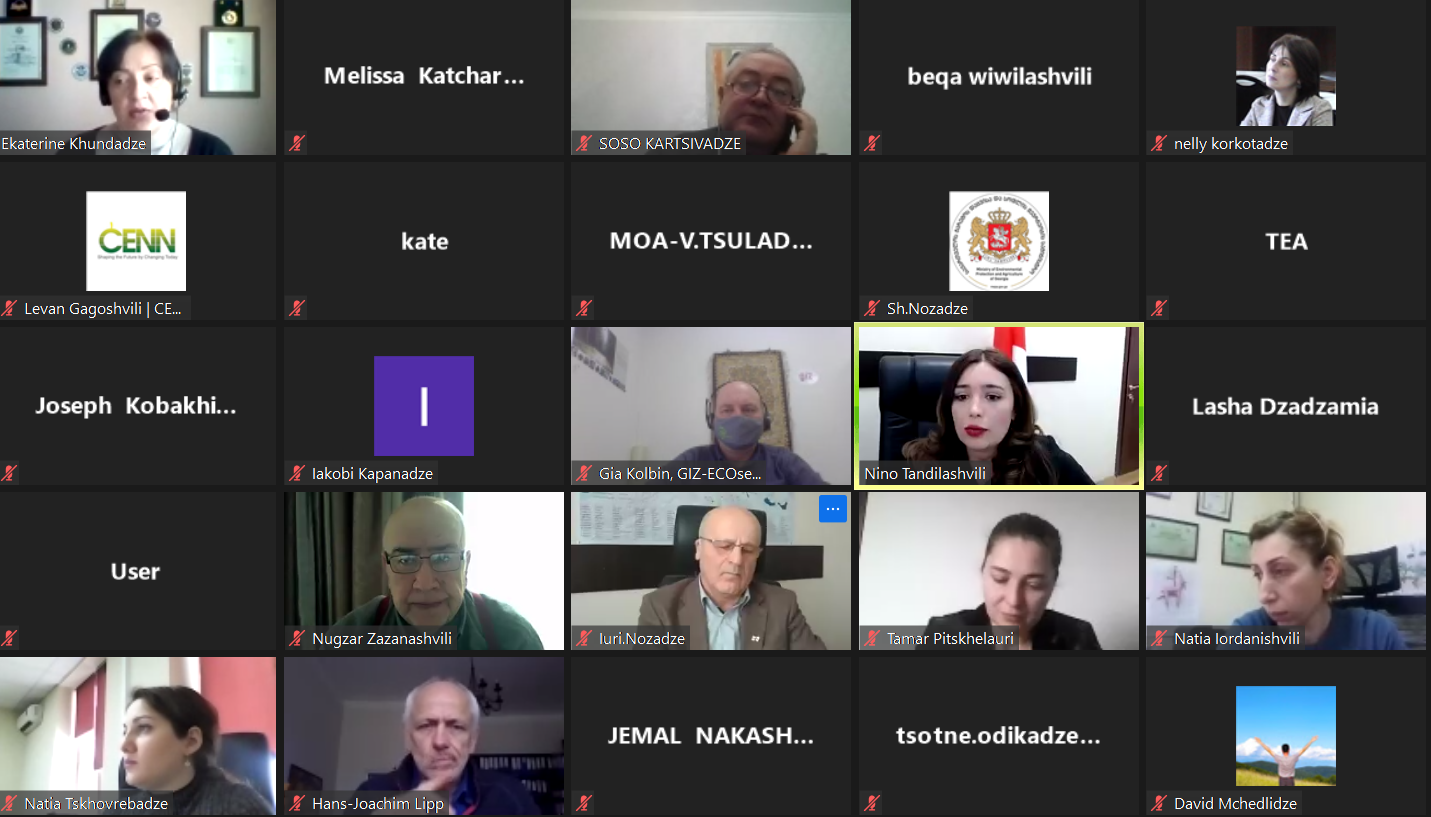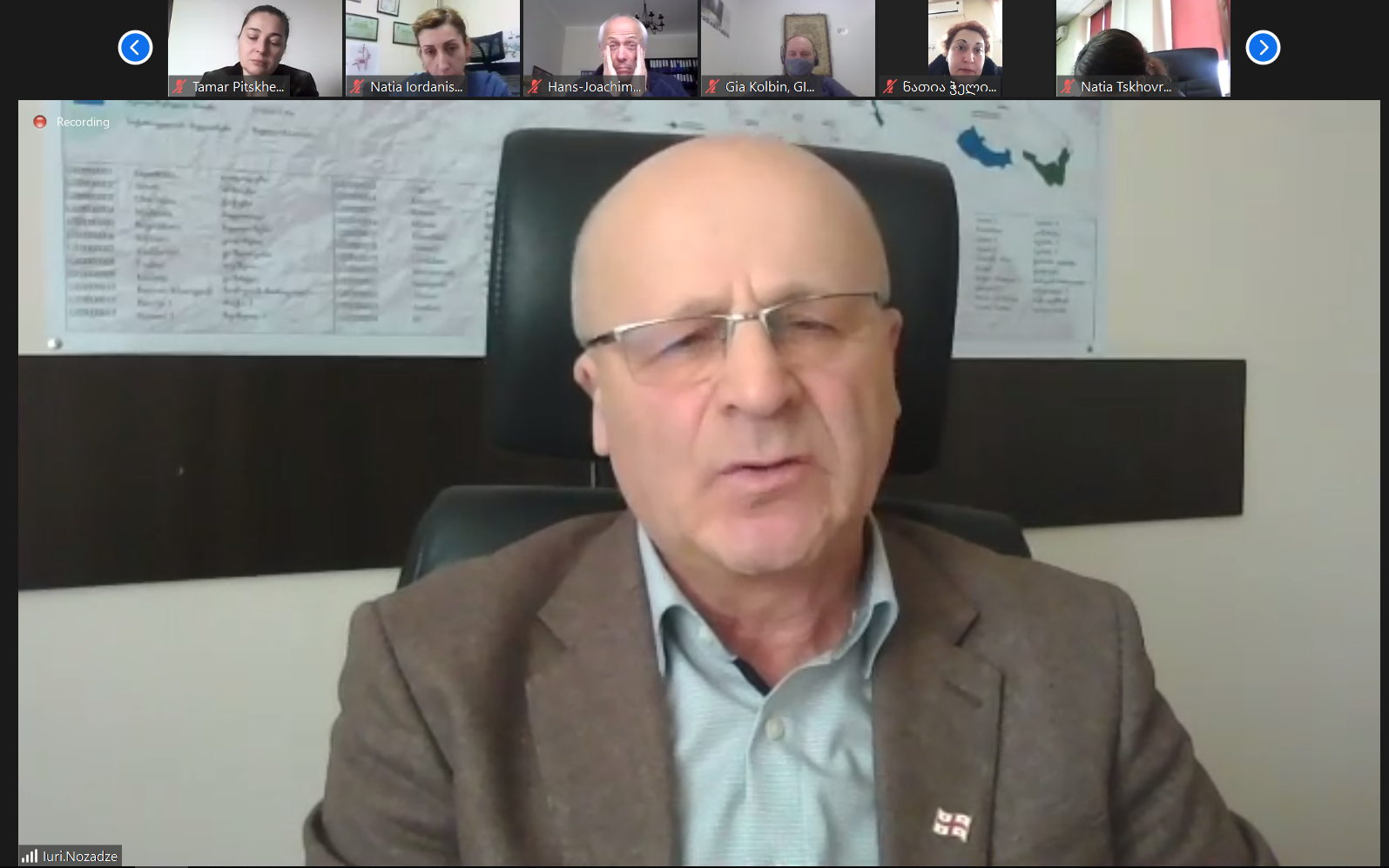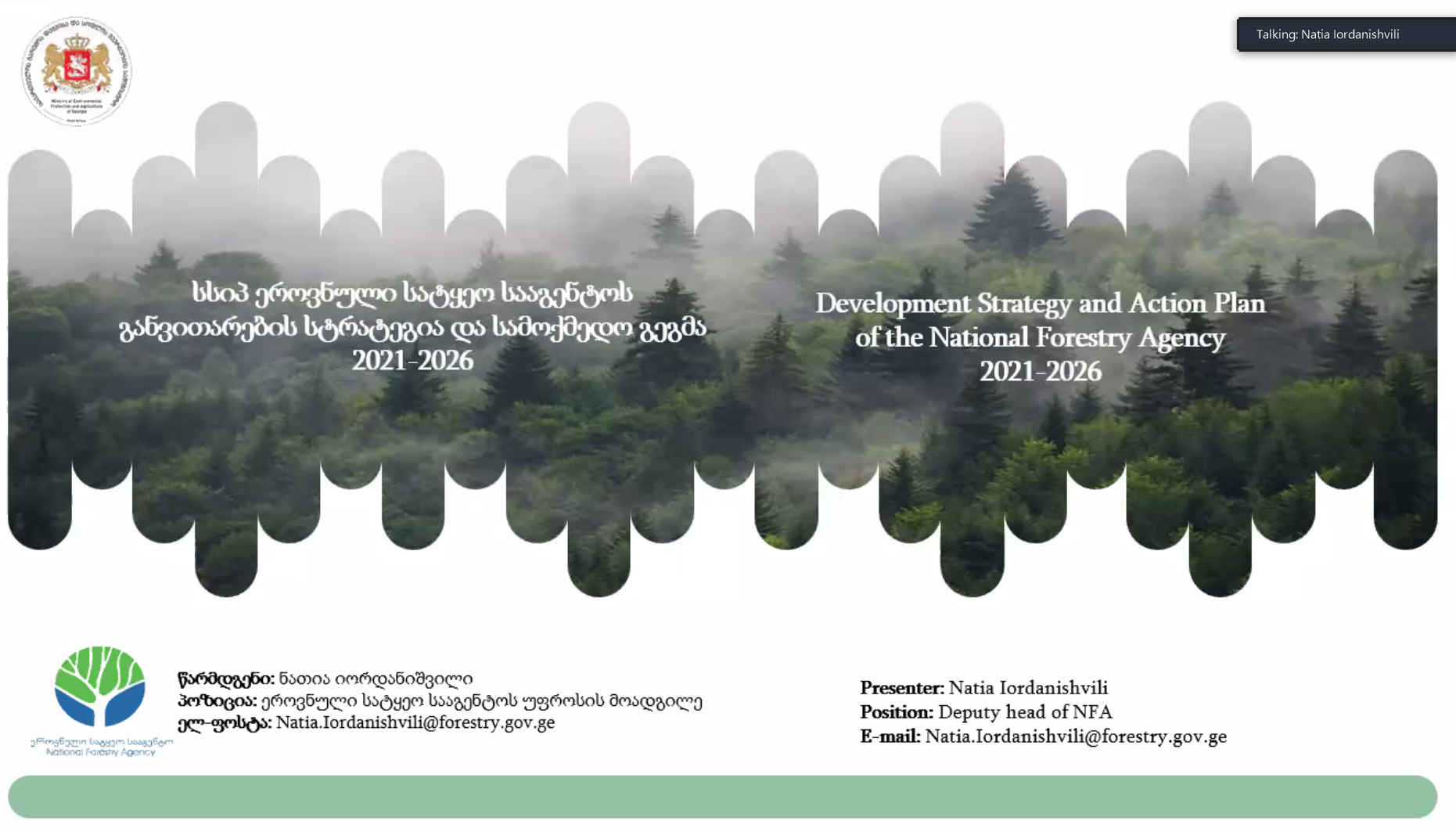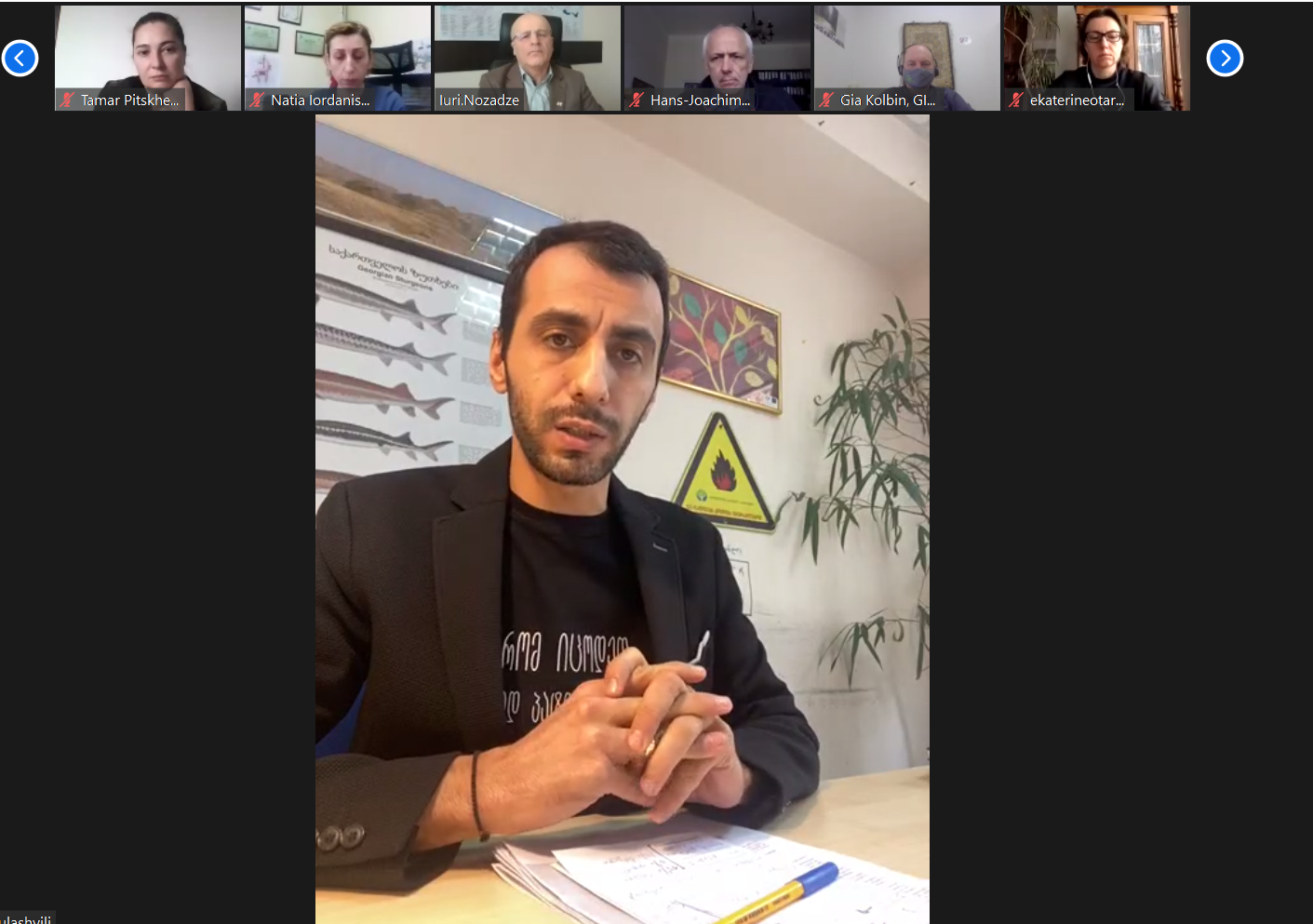News
Discussion on the future progress of the National Forestry Agency
The fourth consecutive meeting of the “Institutional reform” working group of the National Forestry Program scrutinized development strategy of the National Forestry Agency, as well as an entailing working plan (2021 – 2026) for brainstorming on matters related to the Agency’s future progress and development. Deputy Minister of the Environmental Protection and Agriculture of Georgia (MEPA), Ms Nino Tandilashvili and Mr Iuri Nozadze attended the meeting, which also enjoyed presence of non-governmental and international organizations, scholars and other respective stakeholders.“In 2020, the Parliament of Georgia adopted the Forest Code, which has been cultivated on sustainable management principles of forest and which aspires to fundamentally transform an incumbent management system of forests. Reforming the National Forestry Agency and cultivation of the new management model is vital for enforcing the code, thus, it will be followed with gradually transforming the Agency into a multispectral entity; therefore, the Agency will become authorized to manage forest and generate income from the latter for reinvesting it back to recovering the forest, wildfire prevention, arrangement of infrastructure and other elements of forest management” – Deputy Minister Tandilashvili mentioned.
Deputy Minister Nozadze stressed out importance of entailing every single factor, which will complement effective elaboration of the strategic planning process.
“Action plan and development strategy for the period of 2021-2016 of the National Forest Agency has defined key programming, which will be implemented throughout the next 5 years. It is crucial to embrace development of the new model, which will complement ensuring effective forest utilization” – Deputy Minister Nozadze stated.
Attendees to the meeting embraced meaningful contribution of the donor organizations toward development of the forest sector. The National Forest Program (NFP) is implemented upon assistance of the Caucasus Environment NGO Network (CENN) and he German Agency for International Cooperation or (GIZ).



